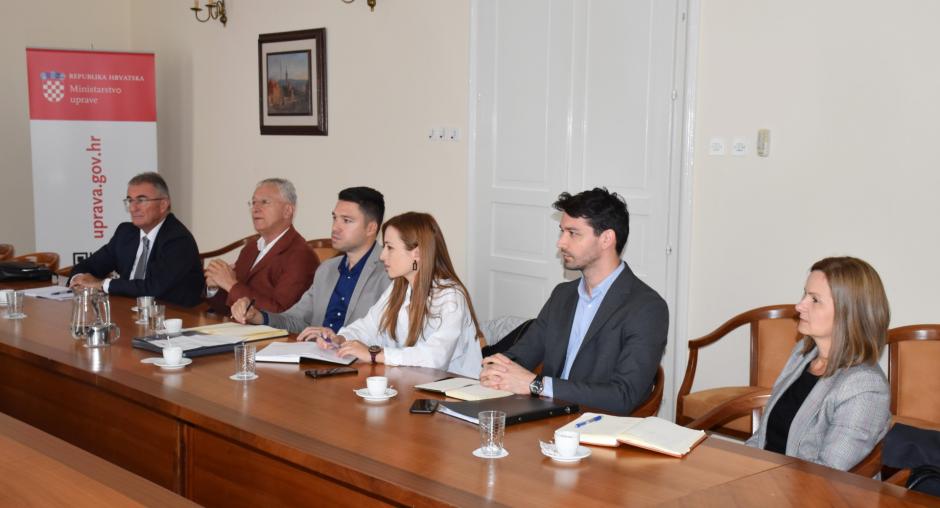Montenegro’s State Election Commission holds bilateral meetings with counterparts during OSCE-supported study visit to Croatia

During an OSCE-supported study visit to Croatia from 2 to 5 October 2019, representatives of the Montenegrin State Election Commission (SEC) met with their counterparts from the Croatian State Election Commission, the Ministry of Public Administration and the Ministry of Interior. Their exchanges focused on electoral laws and voters’ Register, education campaigns for voters, co-operation between electoral management bodies and other governmental and nongovernmental organizations. Commissioners had the opportunity to compare the electoral legislation and the organisational structure of election management bodies in the two countries.
“Getting to know the functioning of institutions relevant to the electoral process, with a focus on the State Election Commission, has contributed to a new perspective and insight into how similar systems work. In this way, new knowledge is acquired and best comparative practices are adopted, which should ultimately result in the improvement of the overall work and organizational framework of the State Election Commission,” said Nikola Mugoša, SEC legal adviser.
Milijana Radulović, SEC legal adviser, said that during the first day of the visit, they got acquainted with voter registers, records for keeping voters’ registers, updating and deleting data, voting abroad and excerpts from voter lists through presentations. “On the second day of the visit, we got familiar with the composition of the Croatian State Election Commission, competencies, types of elections, bodies for conducting elections,” said Radulović.
According to SEC legal adviser Elisa Nurković, the visit was an opportunity to learn more about regulations governing the election process, the organization and competencies of the election administration bodies. “The exchange of experience was extremely helpful. I gained a clear insight into the organization and the way elections are conducted in Croatia.”
Darko Brajović, the OSCE Mission Democratization National Programme Officer, said that structures of electoral management bodies in the region vary. They depend on their tasks, the degree of independence and administrative capacity. “The OSCE Mission to Montenegro facilitated two study visits in which the Montenegrin SEC was able to compare how different electoral management bodies are structured and hence contribute to electoral reform dialogue in the country,” said Brajović.
The study visit was a part of the OSCE Mission to Montenegro’s project on elections that aims to contribute to improving the transparency of the electoral process and enhance public trust in elections.
